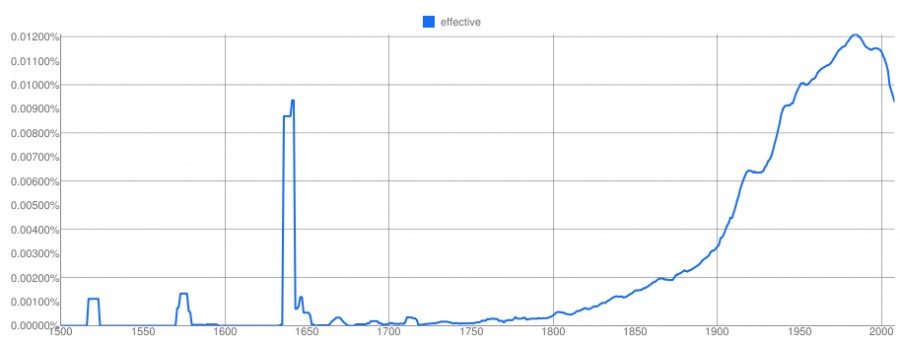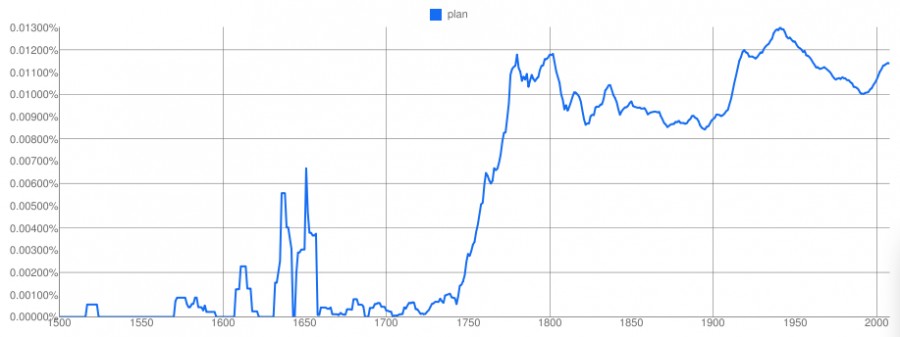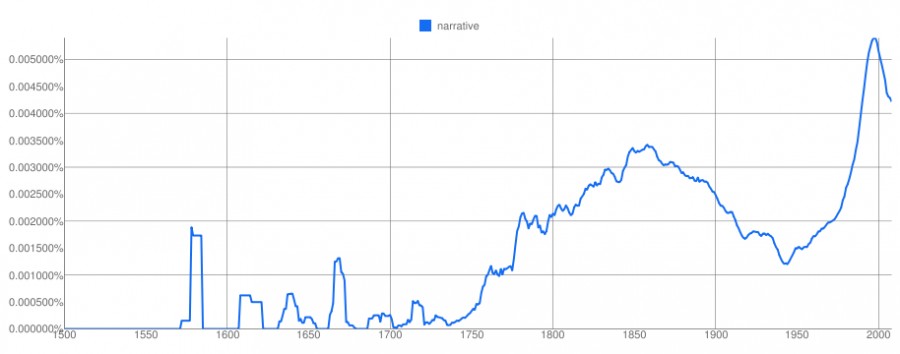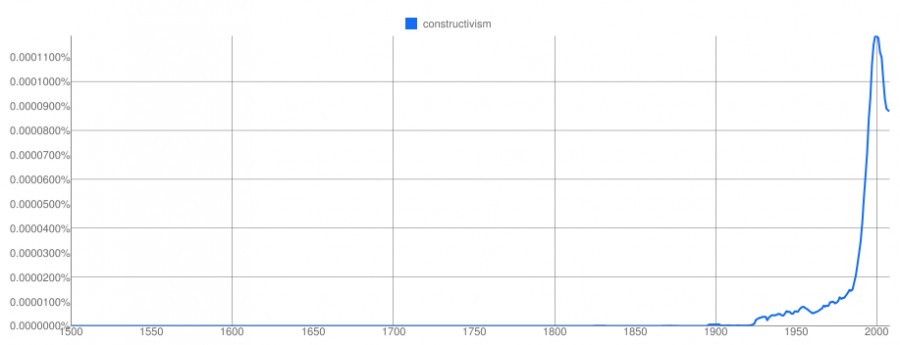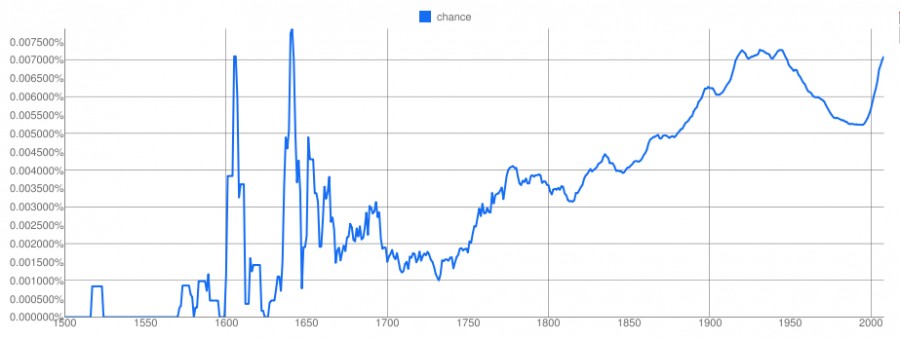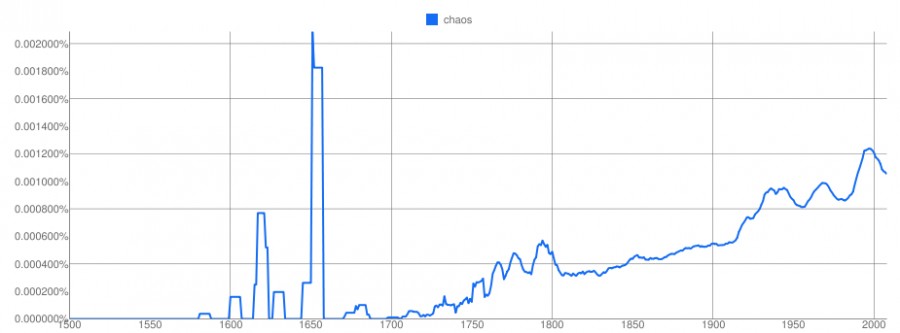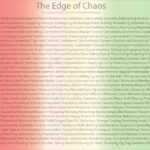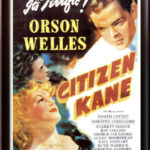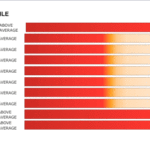LinkedIn report the top 10 clichés found on LinkedIn profiles in 2011 (see here). So how do these words stack up in terms of historic usage? Using a relatively unknown google research feature called Ngram, we can see how often each of these words have appeared in books since the 1500s! It is interesting to see how many of the words in career development have only recently become fashionable, but there are some that we might think are shiny and new that have been around before or forever.
Top of the LinkedIn list was “creative”. Here is the Ngram result:
note: (the graphs show the results of analyzing up to 6000 books published each year from 1500-2008. In the early years this represents all the books published, and in later years, a random selection of books. The percentages on the y-axis represent the number of times the searched word appears as a proportion of all words published in the sample of books for that year)
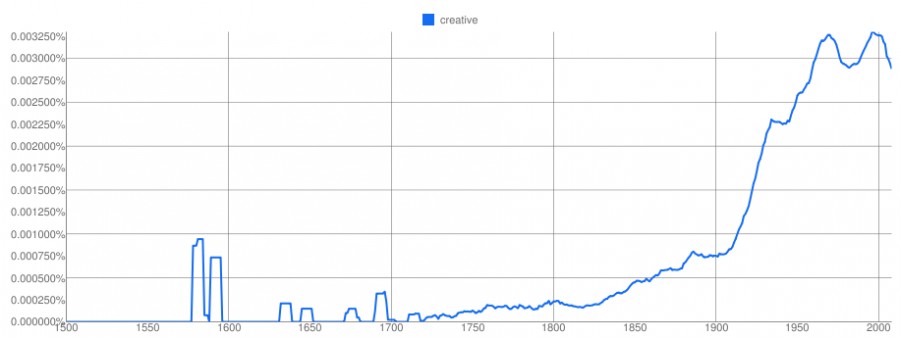 This word didn’t really feature until the self-conscious C20th, and plateaued around the time of the Mad Men Madison Avenue advertising hey-dey in the 1960s.
This word didn’t really feature until the self-conscious C20th, and plateaued around the time of the Mad Men Madison Avenue advertising hey-dey in the 1960s.
Next up is the word “Organizational” – which is kind of embarrassing I was the National Chair of the College of Organizational Psychologists!
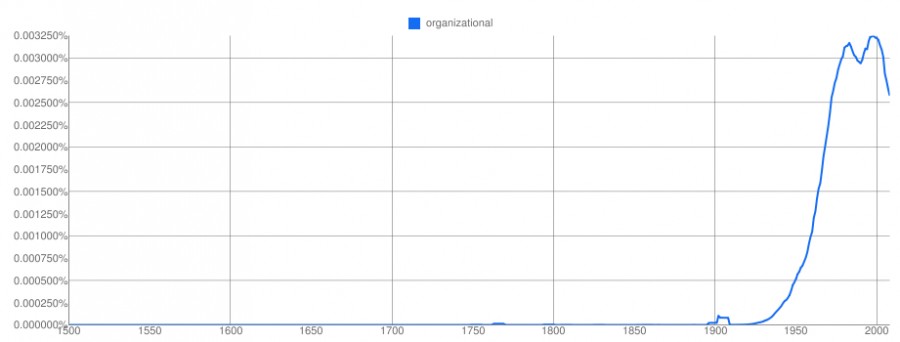 “Organizational” is definitely a post-war phenomenon and is there evidence it is on the way down perhaps? Time will tell.
“Organizational” is definitely a post-war phenomenon and is there evidence it is on the way down perhaps? Time will tell.
At number 3, was “Effective” – a word that was popular in the renaissance, and is having, well, a renaissance now.
Number six on the list was “Motivated”.
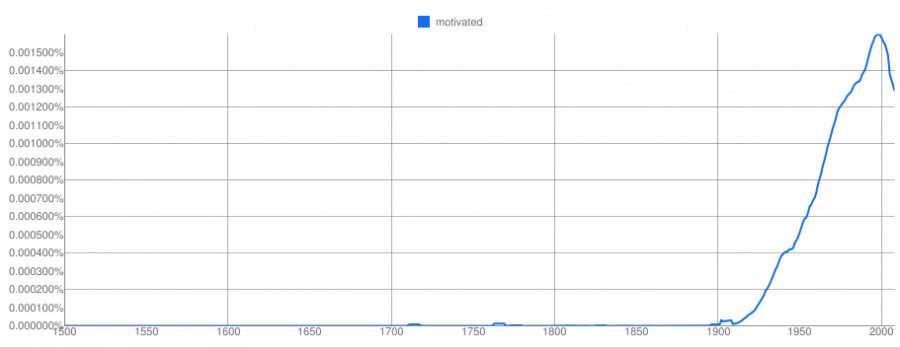 My oh my! It seems the C20th was all about getting up and getting on, but have we turned the corner in the C21st? I just cant be bothered to find out!!
My oh my! It seems the C20th was all about getting up and getting on, but have we turned the corner in the C21st? I just cant be bothered to find out!!
At number 10 was that old stalwart of the resume – “Dynamic”.
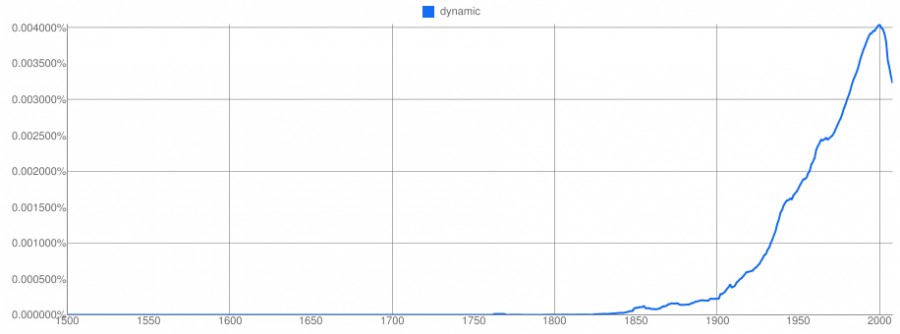 It seems that as we got progressively more motivated in the C20th we also decided to call ourselves “Dynamic” – the C20th really was an exhausting century!
It seems that as we got progressively more motivated in the C20th we also decided to call ourselves “Dynamic” – the C20th really was an exhausting century!
But what about some other terms that we bandy around frequently in Career Development – like er, “Career”
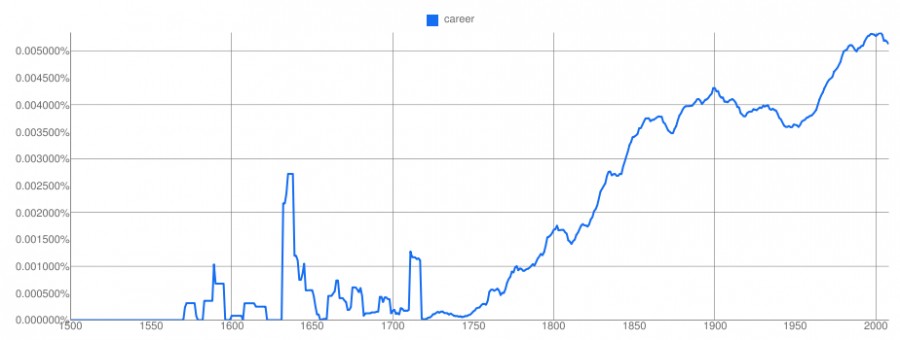 The word shows a less dramatic rise in usage, having been used relatively often in the renaissance, but really started to build in the Victorian era and the industrial revolution. Interestingly, Parson’s seminal work “Choosing a vocation” was published at the historic peak usage of the term career, which promptly went into decline until the 1950s. I’m not claiming causation here!
The word shows a less dramatic rise in usage, having been used relatively often in the renaissance, but really started to build in the Victorian era and the industrial revolution. Interestingly, Parson’s seminal work “Choosing a vocation” was published at the historic peak usage of the term career, which promptly went into decline until the 1950s. I’m not claiming causation here!
The term “plan” that is dear to the hearts of some in the Career Development world is an interesting one. It exploded in popularity between 1750 and 1800 (when Napoleon had his mojo) and stayed relatively popular up until the end of world war 2. Interestingly then it declined until about the 1980s, when the dreaded goal setting literature and Olivia Newton John turned us all into leg warmer wearing goal-focused gym junkies and office warriors – well perhaps!
The current popularity of the term narrative in career development, politics, well just about everywhere, is reflected in the graph below, showing exponential growth in usage since the second world war.
Another term we hear a lot at the moment “constructivism” rocketed to popularity in the 1970s, but by 2008 looks to be at the beginning of suffering an equally sharp decline. So constructivists out there, get publishing more – or at least start thinking about it, if you believe thought is reality and see if by the power of thinking you can get the line to move upwards once again. Just kiddin!! 🙂
Words close to my theoretical heart and a basis for the Chaos Theory of Careers is the word “Change”. Ironically there has been little change in the growth rate in usage of the term change. It shows an almost perfect linear growth rate in C18 and C19 (funny that the Industrial “revolution” didn’t give it a kick along). However C20th saw the growth rate in usage of the term increase markedly, but then it plateaued around 1970 – which is a little surprising to me.
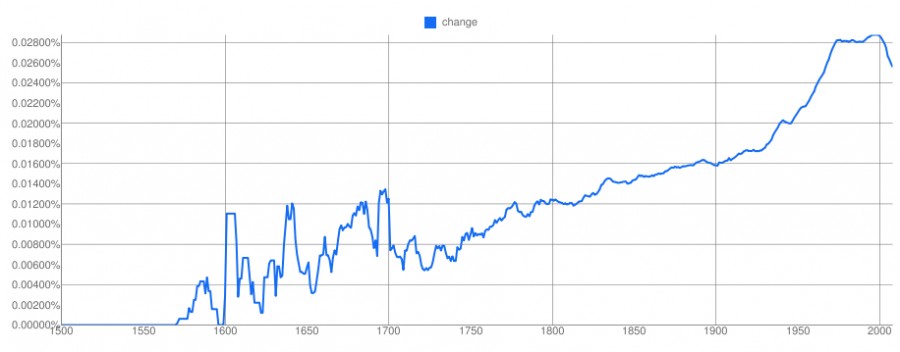 The term “chance” has a colorful history as the graph below shows. The Elizabethans were into it big time (as they were equally into “mutability” as Rob Pryor and I point out in our book – The Chaos Theory of Careers. The term peaked in usage between the world wars, fell steadily in the era of “certainty” of the 1950s to 1980s, and rocked back into popularity in the last 10 years.
The term “chance” has a colorful history as the graph below shows. The Elizabethans were into it big time (as they were equally into “mutability” as Rob Pryor and I point out in our book – The Chaos Theory of Careers. The term peaked in usage between the world wars, fell steadily in the era of “certainty” of the 1950s to 1980s, and rocked back into popularity in the last 10 years.
Finally “Chaos” is an interesting one. It appears that 1650 was total chaos! I blame in on Frenchman Renee Descartes who said “I think therefore I am” in this year, well probably “Je pense donc, je suis”, but it is all French to me. The term has taken centuries to recover from his method of doubt, but has shown steady and predictable (ie not chaotic!!) growth in usage, apparently recently returning to long term growth trends after a little flurry in the 1980s probably associated with the popularization of the science usage of the term by Gleick and others during this decade.
So what other words would be worth exploring?
Related Posts

